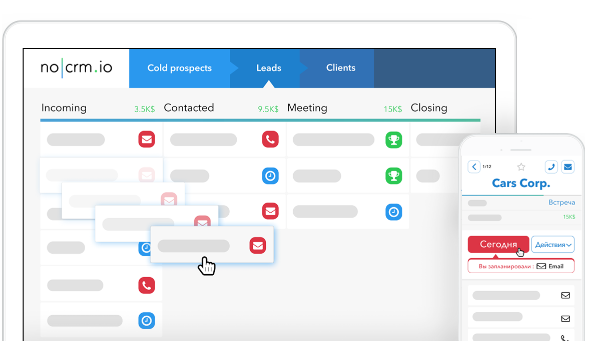You can’t build a sales team overnight. There are several nuances and intricacies that that go into the attributes of a collective unit of high-performing reps.

Let’s raise a glass to the great teams in life: The ‘92 Chicago Bulls, the ‘99 US Women’s Soccer team, the Wu-Tang Clan, and the Avengers. When you think about it, aren’t we all just aspiring to be the sales version of Captain America, Black Widow, the Hulk, and friends?
Every sales manager does want a group of talented professionals who can (Hulk) smash targets. But bringing such a collective together is no easy feat, and a few good sales individuals doesn’t equate to a great team.
Finding the right ingredients, mixing them together, and producing an A-star collection takes good leadership, hard work, research, and a slice of luck.
Here are some essential tips to build a sales team that smashes targets
The Balance of a Boss
A team is only as good as its leader. As a boss, you have the power to affect change and build a sales team of top tier sales reps. This starts with avoiding micromanaging tasks–there needs to be a balance of knowing when to be hands-on and when to take a hands-off approach.
Next, it’s important to look at your sales team and setup. Whether you aim to rebuild your team or organization, it’s vital to analyze the current situation and climate. Find out who performs best and who needs improving to give you a clear view of the bigger picture.
Create a Structured Sales Team

Turn your Team into Specialists
Once you have a clear idea of your team’s abilities, create a sales structure where they can thrive. The sales team is such an important aspect of a company, so getting it right is crucial. Without sales, there is no revenue. But that doesn’t mean every sales team is the same.
Delegate reps to roles where you feel they excel. Let’s take our hypothetical sales rep, Andy, for example. Perhaps Andy’s strong points are in the qualifying stages, but they’re not so good when it comes to closing.
If that’s the case, get Andy qualifying prospects, rather than other aspects of the process where they aren’t quite as good. Focus your sales team’s efforts on their strongest attributes.
If you Build it They Will Come
Now the team is rocking and rolling, it’s time to provide them with the materials to succeed. First, look at the tools your competitors use. Make a list of their strong and weak points, so you can identity what might work for your group.
Talk to the marketing team and get them to build the prospecting lists from their outbound and inbound lists, rather than depending on your sales team to do it.
Salespeople are only as good as the ammunition they are given. The team needs to have marketing materials, content and tools (more on those later) in place to do their job to the best of their ability. Make sure all bases are covered. Expecting them to be the research department, marketing material and sales all wrapped into one will hold them back from excelling in their role.
Build a Sales Team by Identifying Key Traits
You can’t build a sales team if you don’t have good customers. Part of the prospecting process is identifying potential leads. To do that, you need to have a clear picture of your target audience. Build a list of companies that you think are worth reaching out to, then share it with your cold calling team so they can start making contacts.
The process also works for small teams. Even if it’s just a group of three, start with one marketer, one caller and one closer.
Create a Sales Process
The marketing department is on board and you’ve identified the structure of the team. The focus should now be on the sales process.
Start with setting a realistic number for calls each month when it comes to cold calling. It’s the same for qualifying—figure out an amount of leads that you think the team is capable of producing.
For a sales process to work, there needs to be a transparent pipeline. Once goals are defined, put a process in place that reps can easily understand.
Too often, pipelines end up becoming jumbled, and sales reps are forced to use tools they don’t like. Give them software that makes managing their leads simple and always provide a clear next step.
Set Clear Goals

Create the Right Environment
Be transparent with your team – tell them when things are going well and when improvements should be made. If they’re performing to a high level, show that their effort is being taken into account. This can involve setting up a bonus structure for high-performing reps.
A healthy culture will attract good talent. To create a positive atmosphere there needs to be an element of competition, acknowledgment of success and failure, and continuous learning development. The latter lends itself to having staff who are always willing to challenge themselves and absorb information.
Set Expectations
Everyone performs better when there is something to work to. This is true of both individuals and teams. No one should be unclear of expected targets. Make sure the team have a complete understanding of what is expected of them.
Setting team KPIs is a way to get everyone working as a collective. If staff have targets they feel are achievable, motivation increases. Which lends itself to a better all-round performance and team dynamic.
For example, let’s say the target is to close 20 deals in a month. For this to be successful, marketing will likely need to find 1,000 unqualified prospects. From that number, around 600 calls should be made by reps. Out of those 600 calls, let’s say that 60 meetings are arranged. From those 60 meetings, there is a good chance that you will reach your target of 20 closed deals.
These aren’t exact numbers, but the focus should be on sales departments having an idea of the metrics they need to aim for to achieve end of month targets.
Reward Success
A good working culture sets the scene for high-performing reps—it goes without saying. When a team isn’t only reaching goals but exceeding them, it’s important that rewards are forthcoming to stop sales reps leaving. Recognising accomplishments creates a better workplace atmosphere. Incentivise reps with bonuses and team rewards.
The best teams have the best managers, and the top-level managers understand that celebrating success relieves pressure. Spirits stay high and motivation increases to exceed previous sales targets.
Finding the Best Reps

A Willingness to Learn
Stellar CVs look great on paper, but how motivated is someone coming from a massive company with a proven track record? That might sound like an odd question to ask, but having an elite sales rep – or several – might provide quick wins, but the long-term health of the team could suffer.
Find a correlation between the strength of their pedigree and sales skills. Look to mould staff who are willing to listen, absorb information, and have a can-do attitude. Hunger and eagerness is often more potent than proven pedigree.
Good Listeners
The consensus is that salespeople need to talk a good game to win deals. In reality, the best reps are the ones who listen. Not just to their manager but also their prospects and clients. Reps who place an emphasis on understanding problems and finding solutions based on what they’ve learnt will prosper.
Customers are primarily the spine of any business—there would be no one to buy a company’s products or service without them. A team full of salespeople who take time to listen and invest in their clients are heading in the right direction. Knowing when to listen and when to talk is critical to success.
Leaders within the Team
Excellent sales staff are ones who are ready to hold themselves accountable individually—not just within the team. They undertake an extra layer of responsibility. Successful salespeople are on the ball and keep their managers up to date with an overview of their work.
It’s these personality traits that help identify the best team members and potential future leaders. If a sales team works just as well collectively as they do together – helping each other out and getting involved with other tasks – they are likely to be more successful.
Build a Sales Team That is the Best

A good working culture sets the scene for high-performing reps—it goes without saying. When a team isn’t only reaching goals but exceeding them, it’s important that rewards are forthcoming. Recognising accomplishments creates a better workplace atmosphere. Incentivise reps with bonuses and team rewards.
A great sales team is a combination of active leadership, willingness to learn and listen, and desire to succeed. There is no set way to build a team of all-star reps. But if the right process is in place, realistic KPIs and team targets are set, and the atmosphere is one they can thrive in, it’s possible to build a team of winners who exceed expectations.
Enjoyed this post?
Now that you have the ingredients to build a sales team that smashes targets, find out what makes the best sales CRM.


